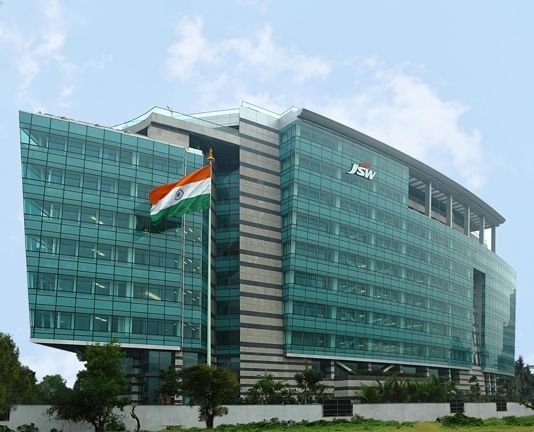Imagine a business empire strategically reshaping its portfolio to conquer new markets, all while balancing regulatory demands and investor confidence. On May 16, 2025, the Sajjan Jindal-led JSW Group took a bold step toward this vision, offloading a 2% stake in JSW Infrastructure for Rs 1,210 crore to fund a transformative acquisition of AkzoNobel India, valued at Rs 12,000 crore. This move not only aligns with India’s stringent public shareholding norms but also positions JSW as a formidable player in the booming consumer paints sector. For stakeholders, from Mumbai’s stock traders to rural homeowners eyeing Dulux paints, this deal signals a new era of growth and competition. Here’s a deep dive into this landmark transaction and its implications.
Strategic Stake Sale: A Dual Purpose Move
The Sajjan Jindal Family Trust, holding an 80.72% stake in JSW Infrastructure as of March 2025, sold 4.2 crore shares (2% equity) at an average price of Rs 288.21 per share, totaling Rs 1,210.48 crore. The transaction, executed via block deals on the National Stock Exchange (NSE), included a significant Rs 531 crore purchase by the Government of Singapore, acquiring 1.84 crore shares (0.9% stake) at Rs 288.10 each. Other institutional investors participated, though their identities remain undisclosed.
This sale serves two critical purposes. First, it aligns with the Securities and Exchange Board of India (SEBI) mandate requiring listed companies to maintain a 25% public float. JSW Infrastructure, which debuted on October 3, 2023, has until September 2026 to reduce its promoter holding from 85.62% to 75%. The stake sale reduces the trust’s stake to 78.72% and the total promoter holding to 83.62%. Second, the proceeds are earmarked to partially finance JSW Group’s ambitious acquisition of a 75% stake in AkzoNobel India, a deal that marks its aggressive push into the consumer paints market.
AkzoNobel India Acquisition: A Game-Changer
JSW Group is on the verge of acquiring a 75% stake in AkzoNobel India, the maker of Dulux paints, from its Dutch parent, AkzoNobel NV, in a deal estimated at Rs 12,000 crore. Led personally by Sajjan Jindal, the negotiations outmaneuvered competitors like Pidilite Industries and Indigo Paints, with JSW Paints emerging as the frontrunner after exclusive talks. The acquisition, expected to close by Q2 2025, will give JSW control of a company with a robust distribution network and a market cap of Rs 15,857 crore as of May 16, 2025.
The paints sector in India, valued at Rs 80,000 crore in 2024, is fiercely competitive, with players like Asian Paints and new entrants like Aditya Birla Group’s Birla Opus intensifying the race. AkzoNobel India’s Dulux brand, known for premium quality, offers JSW a strategic foothold to scale its consumer-facing JSW Paints, launched in 2019. The acquisition aligns with JSW’s broader M&A strategy, following high-profile deals like the Rs 12,468 crore acquisition of O2 Power and ₹16,000 crore purchase of KSK Energy.
Financial Maneuvering: Funding the Deal
The Rs 1,210 crore from the JSW Infrastructure stake sale is a key piece of the funding puzzle for the AkzoNobel deal. To bridge the Rs 12,000 crore valuation, JSW is exploring partnerships with private equity firms, a strategy it employed in past acquisitions. The block deal, advised by Jefferies, was priced at a 3% discount to the stock’s closing price, ensuring investor interest while maximizing proceeds. Posts on X reflect market excitement, with analysts praising JSW’s strategic balancing of compliance and growth.
JSW Infrastructure’s strong financial performance bolsters investor confidence. In Q4 FY25, the company reported a 57% surge in net profit to Rs 516 crore, with revenue up 14% to ₹1,372 crore and cargo volumes rising 5% to 31.2 million tonnes. For FY25, net profit grew 31% to Rs 1,521 crore, and revenue increased 20% to ₹4,829 crore, reinforcing its position as India’s second-largest private port operator with a 177 million tonnes per annum capacity.
Market Impact and Investor Sentiment
The stake sale triggered a 2.93% dip in JSW Infrastructure’s share price, closing at Rs 288.35 on the NSE on May 16, 2025, down from a 52-week high of Rs 361. Despite the decline, the stock has risen 18% over the past year, reflecting market optimism about the company’s growth trajectory. AkzoNobel India’s shares, meanwhile, surged 3.3% to Rs 3,597, buoyed by acquisition news. The deal’s timing, amid global trade concerns and India’s infrastructure push, positions JSW favorably.
On X, investors and analysts are abuzz, with some hailing JSW’s diversification into consumer markets as a “masterstroke,” while others caution about execution risks in the competitive paints sector. The Singapore government’s investment signals global confidence in JSW Infrastructure, which aims to scale its logistics business to Rs 8,000 crore by FY30.
Why It Matters: A Broader Vision
This transaction underscores JSW Group’s aggressive diversification strategy under Sajjan Jindal’s leadership. Beyond paints, JSW is expanding into electric vehicles, cement, and renewable energy, with plans for a Rs 40,000 crore EV project in Odisha and a $70 billion investment over six years. The AkzoNobel acquisition, coupled with the stake sale, showcases JSW’s ability to navigate regulatory constraints while pursuing high-growth sectors. For consumers, it promises enhanced paint options; for investors, it signals robust returns.
The deal also highlights India’s evolving corporate landscape, where conglomerates are leveraging capital markets to fund consumer-centric expansions. As SEBI’s public shareholding norms reshape promoter strategies, such transactions are likely to increase, fostering market liquidity and investor participation.
(India CSR)







